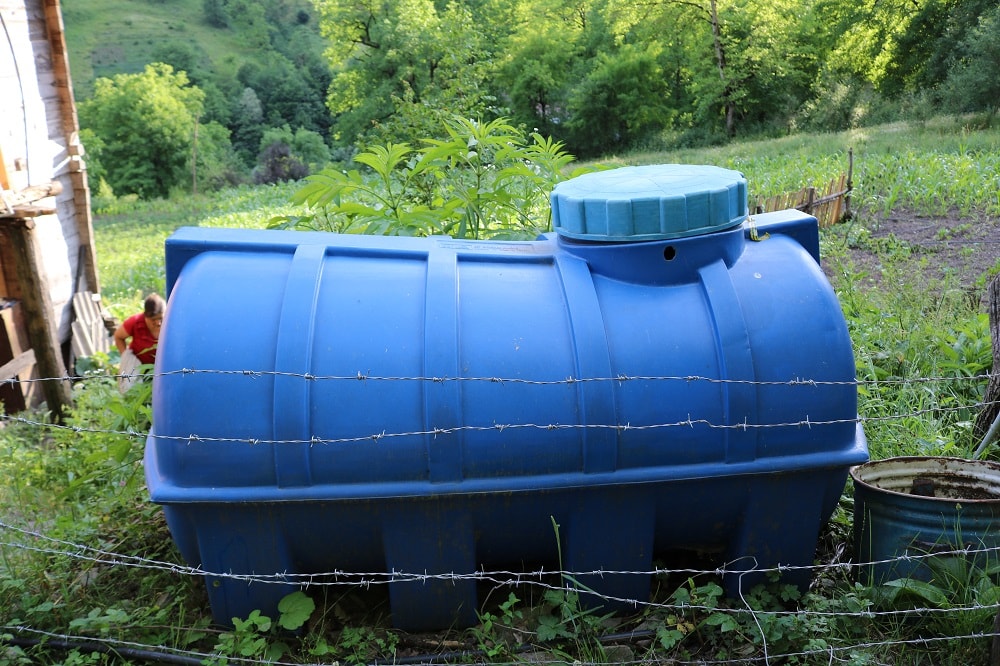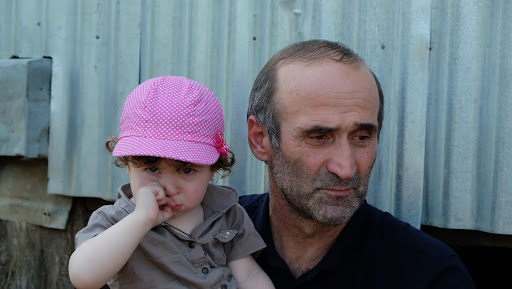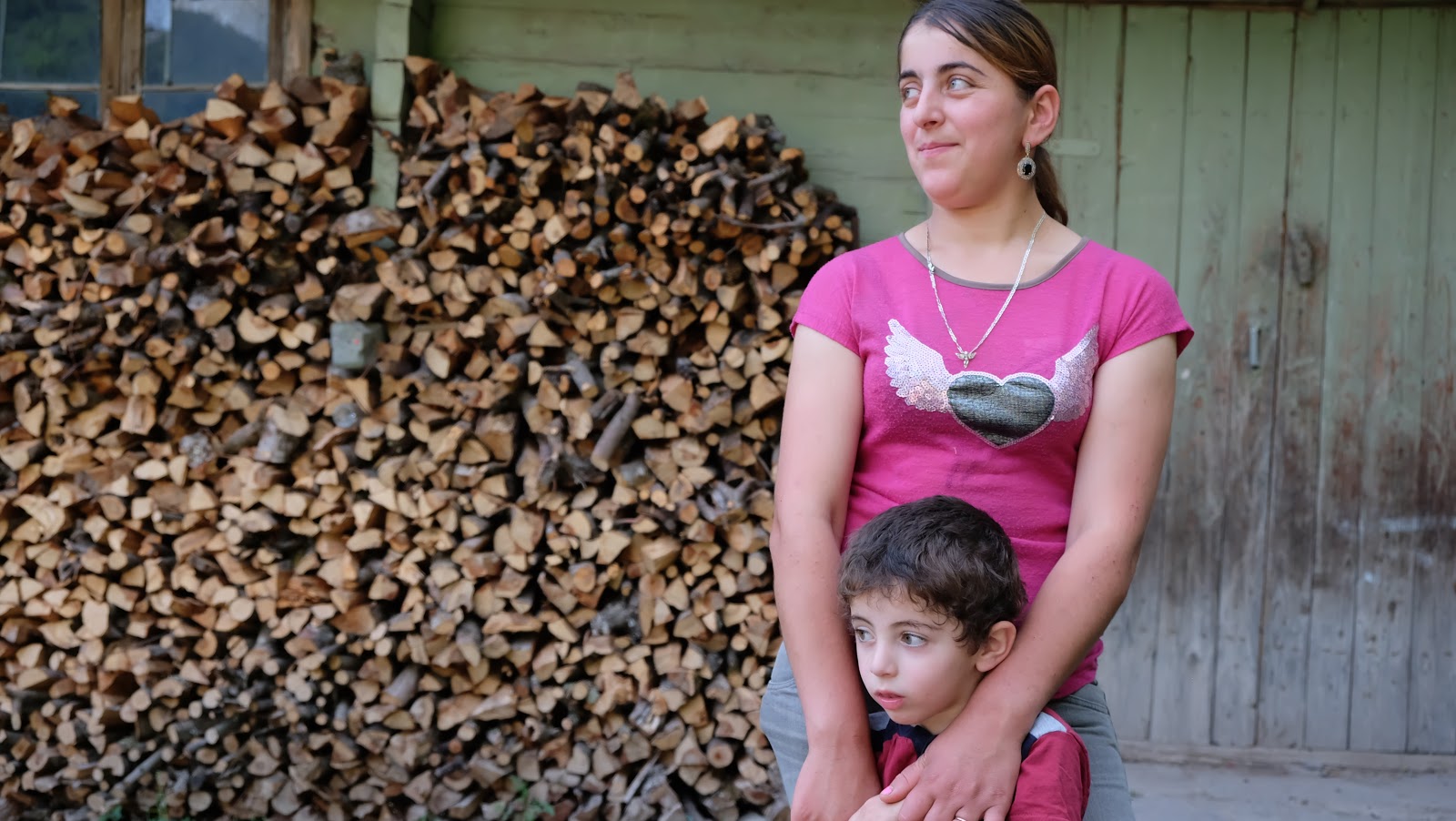The past is never dead
In spite of warnings about its risks and promises of its safety, the idle Shuakhevi hydropower plant in Georgia continues to wreak havoc on local lands and livelihoods
Words and visuals by David Hoffman
Some things you don’t want to be right about.
When I first met communities in Adjara on the border of Georgia and Turkey in 2015, many feared that the blasting and tunneling that had begun on the 185 MW Shuakhevi hydropower power plant would damage their homes, destroy their lands and dry their wells. If their lands no longer provide subsistence, the villagers would need to relocate, a terrifying prospect given the abundance of fertile soils and water resources in this remote, agrarian corner of southwest Georgia. Dato, our campaigner with Green Alternative, was sympathetic to their concerns and warned a news crew reporting for al Jazeera about the risks of Shuakhevi:
“A detailed geological survey was not done for an area that is prone to landslides. This will cause serious consequences, and maybe tragedy, because this is a densely populated area.”
That 2015 visit was timed to coincide with the annual meetings being held in Tbilisi of the European Bank for Reconstruction and Development, the largest and most important financier of hydropower projects in Georgia. Our intent was to take the locals’ concerns to the bank, but the response to the problems with construction at Shuakhevi fell on deaf ears with Alastair Clarke, the bank’s managing director for environment and sustainability:
“We are acutely aware that these projects are sensitive, and we will undertake detailed engineering and scientific studies in order to reduce their impacts.”
– Alastair Clarke
Fast forward four years and the Shuakhevi project is still not operational, and what we saw on our most recent visit this summer confirmed the villager’s initial fears.
Tremors of the past
In June 2017, a press release by Georgia’s ministry of energy announced that the Shuakhevi project was complete, adding the oft repeated narrative about hydropower in the country ‘ significantly contributing to Georgia’s path toward energy independence.’ (The government is now promoting the construction of over 140 new hydropower plants throughout the country’s mountainous regions as a means to secure this independence.) Yet over the next few months the project company backtracked, issuing a series of statements about ongoing inspections of flooding that had kept the project inoperational in the tunnels that divert water from adjacent rivers into the main reservoir at Shuakhevi.
The people we met in June 2019 in Gurta, Golkhanauri, Kinchauri, Makhalikidzeebi and Chanchkalo all live in villages close to this infrastructure, and all were well aware of these risks well before the project even began. Villagers told us that since 2013 they have known and even read studies from the head of Georgia’s geological department, G.Tuskia, who issued a negative recommendation for the plans to build Shuakhevi.
“If they cannot get their own tunnels right, how can we hope they can guarantee our safety?”
Nadia Surmanidze, Kinchauri.
These communities are the ones that now bear the brunt of the project first hand. For example, in Gurta we visited teachers in the local school who complained about how erosion caused by tunneling was already being felt. Mzia Kakhadze, a teacher in Gurta, said, “We have always protested this construction because the village has landslide risks, but the company was always convincing us that nothing serious would happen because such big banks were participating in this process. But then the tunnel collapsed.”
Houses here are built into the sloping sides of valleys, and disasters caused by landslides like the 1976 event that claimed 16 lives in Gurta are still fresh in the memory for many.
Guram Iakobadze, farmer in Gurta whose home has a floor to ceiling crack which he says appeared after the tunnelling
In the neighbouring valley, residents in the village of Kinchauri along the Shkalta river shared similar concerns, but their protests have been ignored. As one resident Akaki Shainidze explained, “We have closed the roads in demonstrations many times, but nobody pays attention to us.”
When the wells run dry
All villages were concerned about disappearing springs, which they rely on for drinking, irrigation and maintaining households. In Golkhanauri, villagers said that during the construction on the derivation tunnels, the amount of spring water decreased significantly, creating shortages of drinking water. While the company had provided water from another source, the amount was not enough to keep up with their irrigation needs, so income from selling agricultural products went down.

A water tank
Back in Kinchauri, villagers said that while the company kept tabs on their water needs and regularly monitored water availability during the first year of construction, the assistance stopped shortly thereafter, and with it sustainable levels of water.
“Here was a mill that for years, my grandpa would use and would my father. It had so much water that it could serve three mills. Now you see what is left.”
Ilia Iremadze, Kinchauri

Relations head south
As an attempt to maintain positive relationships in the villages, the project company offered a number of community projects during the construction phase. For example, locals said that the company monitored water levels and responded to their needs to substitute for disappeared irrigation water.
Yet once the tunnels collapsed, the company stopped its communication and engagement with locals, and passed on the grievances from the communities to authorities. For instance, villagers now receive information about tunnel repairs from locals employed at the project site, who understanbly do not know the exact plans for restarting the project, the planned mitigation measures or the steps to be taken in cases of emergencies.
Sound and fury
With the damages came the complaints. Grievances about water and failing crops are falling on the deaf ears at the company. According to national law, authorities can offer around 20-25 000 GEL (roughly EUR 6100 – 7700) to people living in zones prone to natural disaster. But this ‘eco-migrant’ policy is often criticised as reactive, underfunded, inconsistent and unable to integrate resettled people. Leaving project affected people in the hands of state authorities is not justified, given that international investors whose additionality should be translated into higher standards. The Shuakhevi project has received a number of loans from international financial institutions. In addition to a loan of USD 86.5 million from the EBRD, the project also received development bank loans of USD 90 million from the International Finance Corporation and USD 90 million from the Asian Development Bank.
This means that locals can – and will – file formal grievances with the recourse mechanisms of the banks. In Makhalakidzeebi, the local village head Iskander Putkaradze is leading an official complaint to the EBRD’s Project Complaint Mechanism and the IFC’s Compliance Advisor/Ombudsman, asking these mechanisms to facilitate a dialogue over compensation with the company.
Since May 2018 residents of the Rabat district of Makhalakidze have been negotiating resettlement in a formal mediation process with the company and local authorities. Villagers requested an inventorisation of their properties, including crops like walnut and hazelnut trees, in order to calculate income and livelihood losses to define appropriate individual compensation packages, in accordance with European standards and IFC requirements.

Brother and sister in Makhalakidzeebi
Yet no agreement has been reached so far, as the company has denied that the project poses additional threats of landslides to the villages. Prashant Josh, the executive director of AGL, says that the problems in Rabat are not related to the project.
“We say, ‘we don’t want anything, no money, just give us a guarantee of security and show us proof that we are not in danger.” – Iskander Putkaradze
The mediation in Makhalakidze is being closely watched, as a positive result could pave the way for similar resolutions in other locations impacted by Shuakhevi. If some level of recompense is achieved, the worst of locals’ fears may at least be somewhat rectified.
